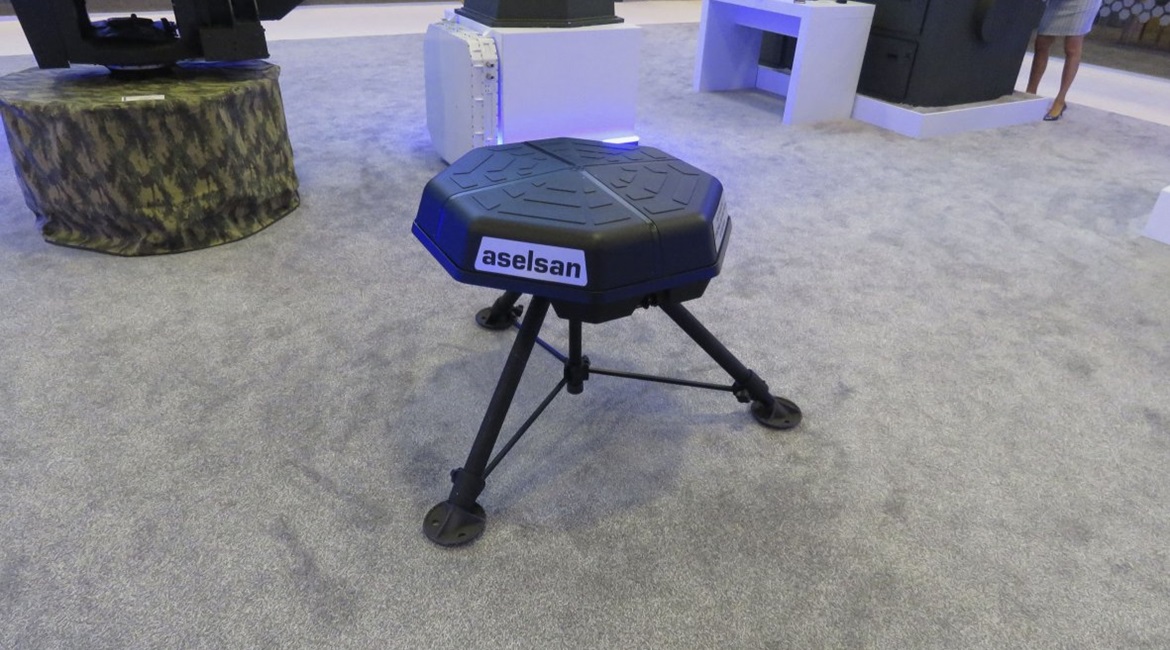
Aselsan unveiled a modular iHTAR counter unmanned aerial vehicle (UAV) system at the International Defence Industry Fair 2019 (IDEF 2019) exhibition held in Istanbul from 30 April to 3 May.
iHTAR is a modular system designed to detect and classify UAVs in urban and rural settings. It can be networked with a suite of systems to provide coverage of a large area and can incorporate hard- and soft-kill options.
It was designed by Turkey’s Aselsan in co-operation with Turkey’s Presidency of Defence Industries (SSB) and the Turkish armed forces to provide a counter-UAV capability suitable for combat operations or defending civil infrastructure such as airports.
UAVs have become a persistent threat for Turkey, especially for the Turkish forces operating in the southeast of the country against the Yekîneyên Parastina Gel (YPG) and Partiya Karkerên Kurdistan (PKK) insurgent groups. The forces there have been subject to several UAV attacks. Elsewhere, UAVs operated by private citizens have caused chaos and financial loss, such as during an incident in December 2018, when the presence of a UAV above Gatwick airport in the UK brought all flights from the airport to a halt.
The central element of iHTAR is the mast, which is fitted with a radar, EO suite, and directional jammer. (IHS Markit/Sam Cranny-Evans )
The iHTAR system is designed to address both concerns; its central element is a mast-mounted sensor suite that includes two radar and an electro-optical (EO) sensor. The primary radar is designated ACAR, and it is used to detect and classify incoming UAVs. It conducts 360° or sectoral surveillance and is capable of tracking lone or multiple threats with a low probability of false reports.

Looking to read the full article?
Gain unlimited access to Janes news and more...






